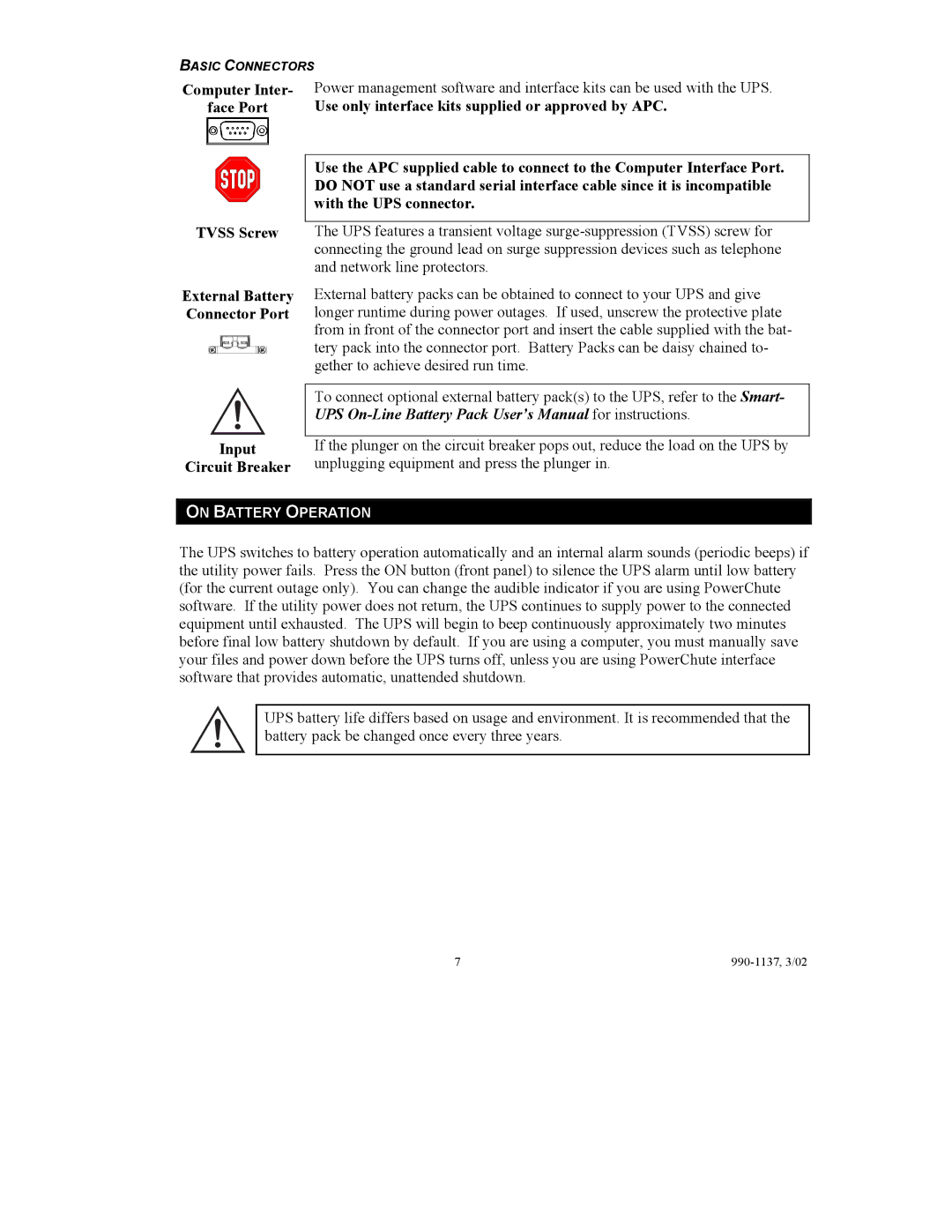
BASIC CONNECTORS
Computer Inter- | Power management software and interface kits can be used with the UPS. |
face Port | Use only interface kits supplied or approved by APC. |
TVSS Screw
External Battery Connector Port
Input
Circuit Breaker
Use the APC supplied cable to connect to the Computer Interface Port. DO NOT use a standard serial interface cable since it is incompatible with the UPS connector.
The UPS features a transient voltage
External battery packs can be obtained to connect to your UPS and give longer runtime during power outages. If used, unscrew the protective plate from in front of the connector port and insert the cable supplied with the bat- tery pack into the connector port. Battery Packs can be daisy chained to- gether to achieve desired run time.
To connect optional external battery pack(s) to the UPS, refer to the Smart- UPS
If the plunger on the circuit breaker pops out, reduce the load on the UPS by unplugging equipment and press the plunger in.
ON BATTERY OPERATION
The UPS switches to battery operation automatically and an internal alarm sounds (periodic beeps) if the utility power fails. Press the ON button (front panel) to silence the UPS alarm until low battery (for the current outage only). You can change the audible indicator if you are using PowerChute software. If the utility power does not return, the UPS continues to supply power to the connected equipment until exhausted. The UPS will begin to beep continuously approximately two minutes before final low battery shutdown by default. If you are using a computer, you must manually save your files and power down before the UPS turns off, unless you are using PowerChute interface software that provides automatic, unattended shutdown.
UPS battery life differs based on usage and environment. It is recommended that the battery pack be changed once every three years.
7 |
